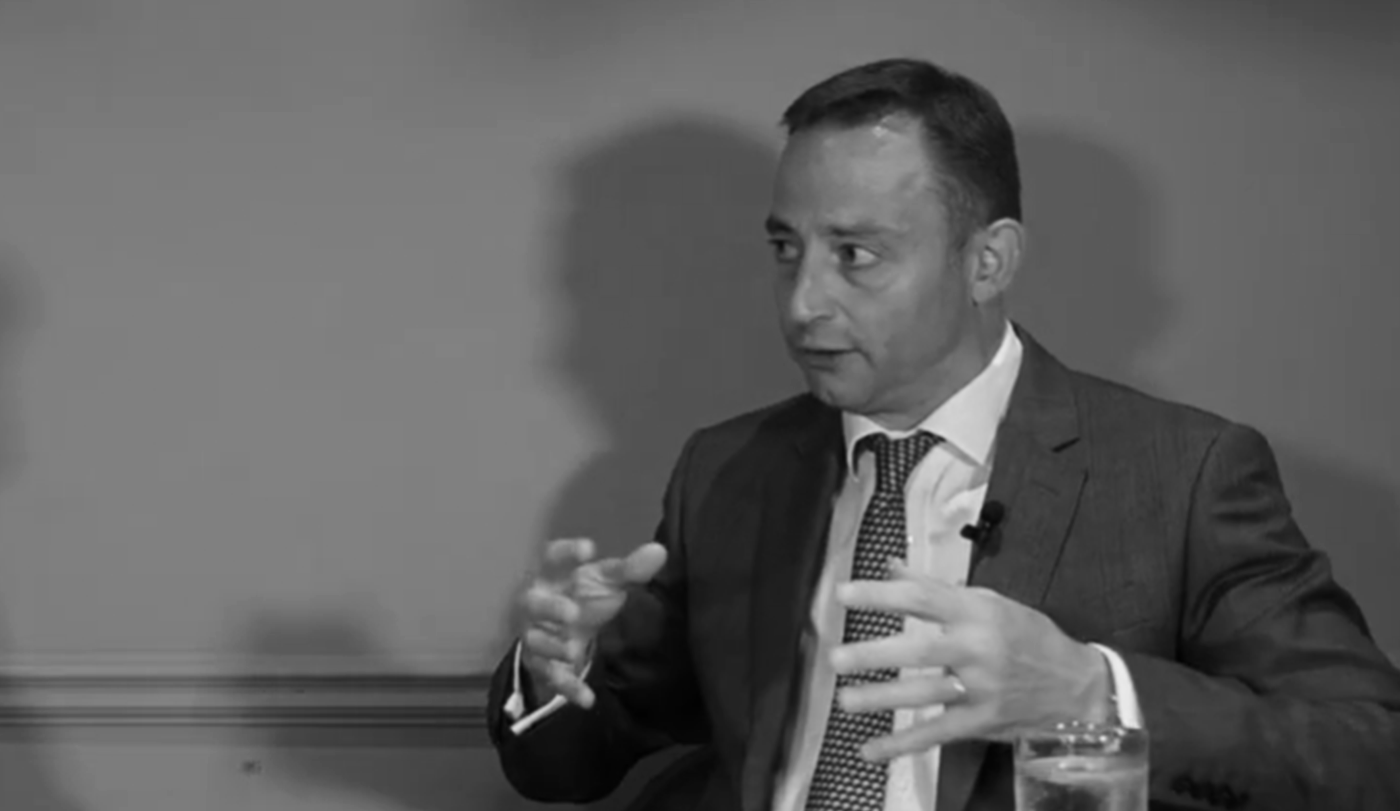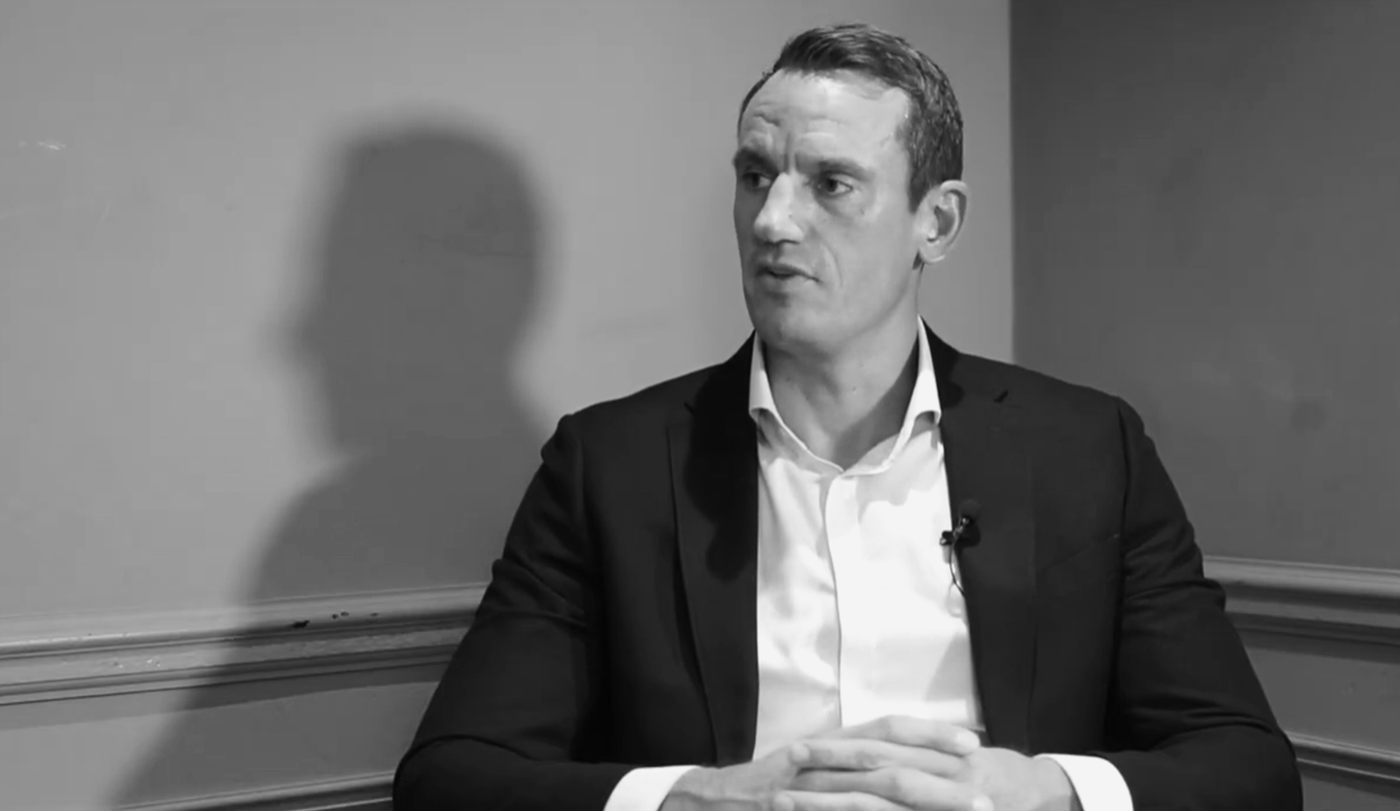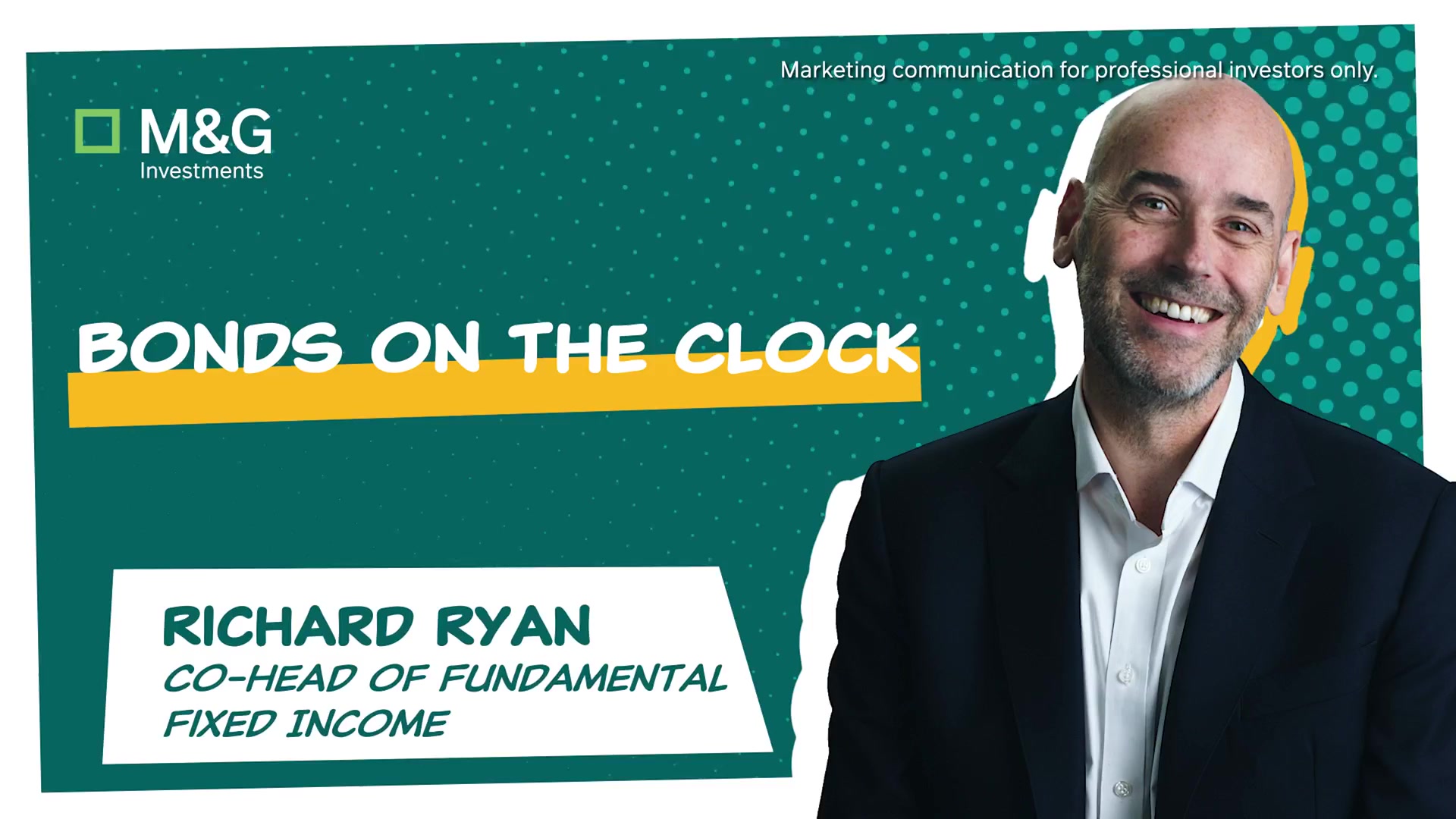On the outlook for biotech, US threats and opportunities and the responsibility of capital allocation
In a twist on our regular series, where we interview key decision-makers in UK fund selection and fund research to discover how they think about life, both within the world of investment and beyond it, this time the spotlight is on the biotech sector
For someone who champions all things biotech as intensely as Linden Thomson, a senior portfolio manager at Candriam, the newsflow emanating from the US over much of this year has been deeply concerning. Still, as you might expect from someone who specialises in biotech and oncology investment strategies, she has a knack of finding a way to improve the health of even the sickliest-sounding diagnosis.
“The threat of the US getting involved in drug-pricing and an impact to the Food and Drug Administration (FDA), which is the gatekeeper for the US market for these companies, is something we have feared for five to 10 years,” she tells Wealthwise editorial director Julian Marr in our latest Choice Words episode above (and we should swiftly apologise here for the technical glitch that means this is only available as a sound recording).
“We are now right in the middle of that, which has meant the sector has sold off, following a number of years of underperformance – indeed, this is the longest bear market we have seen in biotech. That keeps me awake at night – but it also kind of excites me because I do think, in two or three years, we will be able to look back at this time and probably see the bottom of the sector. And, if we see a more efficient FDA come out of this – as we see drugs getting approved, perhaps more quickly – there is a lot of scope for upside from here.”
‘FDA crucial’
Asked about the worst-case scenario for biotech, Thomson makes the case we have actually been living through it due to the Trump administration’s characteristically forthright proposals to reduce the high prices paid by US citizens compared with elsewhere in the world.
“The FDA is so crucial to the biotech sector but I am actually more positive on things now than I was maybe a month or two ago,” she says. “We now have new people at the top, who are saying all the right things in terms of efficiency, in terms of using AI within the approval processes, in terms of thinking differently about how to get drugs approved. Of course, the proof will be in the pudding but drugs are getting approved as it stands – so let’s wait and see.
Making sure we support those companies with good-quality management teams, good products and unmet needs – whether they are fashionable or not, in a ‘hot’ therapeutic area or not – is really important to me.”
“Yet prices don’t reflect that, which is interesting – and drug-pricing in the US has been a challenge for a long time. Still, now, the rhetoric is out there, the headlines are out there, the executive orders are out there – and so I do think a lot of that potential risk is priced into the sector.
“The administration part is very challenging – but it is not just challenging for healthcare, honestly. It is challenging for a lot of sectors. Where do we stand on tariffs? Where do we stand more broadly? But there is just that unique path for healthcare, which is drug-pricing in the US and the risks that are associated with that – and also the opportunities that are associated with that on a longer-term basis.”
‘Innovation heart’
Elsewhere in the conversation, Thomson describes biotech as “the innovation heart” of the healthcare sector. “It is also a sector that has good underlying growth drivers from the fact we are all living longer and, as we age, we have more chronic diseases and use more healthcare,” she continues. “Also, we all have lifestyles that are now introducing more chronic illnesses and so there are good underlying growth drivers.
“There is fantastic innovation too – there has been for two decades and that continues. One particular therapeutic area I am interested in at the moment is neurology – we have not seen much innovation there and we all know the impact of Alzheimer’s, dementia more broadly, schizophrenia and so on. So that is an area I am excited for – to see some of the innovation that comes through there.
“I really want to support companies and, of course, we are an allocator of capital. I take that responsibility very seriously and making sure we support those companies with good-quality management teams, good products and unmet needs – whether they are fashionable or not, in a ‘hot’ therapeutic area or not – is really important to me. Antibiotics, for example, is an area that is very difficult and very challenging from a market perspective and from an ultimate sales perspective – but it is so crucial to humankind going forward it is the sort of area I would very much look at supporting.”
Our apologies, again, that the intervention of technical gremlins has meant this episode is available only as a sound recording. A full transcript can be found after this box while you can listen to the whole episode by clicking on the picture above. To jump to a specific question, just click on the relevant timecode:
00.00: What excites you about the for biotech at the moment?
01.58: Does anything about the sector keep you awake at night?
03.32: What do you most look for in an individual investment? What constitute ‘red flags’?
06.15: What are the most important – and the most overrated – qualities for being a successful biotech investor?
10.40: What drives your approach to communicating with clients?
11.40: What was your path into investment – and, if you had not taken it, what do you think you would be doing now?
13.21: What is the biggest investment mistake you are prepared to admit to – and what did you learn from it?
17.21: What are your best and worst-case scenarios for the future of biotech in the UK and globally?
21.20: What advice would you have given your younger self on your first day in this business?
21.52: Two ‘Choice Words’ recommendations, please – one a book; one a free choice?
Transcript of ‘Choice Words’ Episode 15:
Linden Thomson, with Julian Marr
JM: Well, hello and a very warm welcome to another in our series of ‘Choice Words’ videos where we are going to do something a little bit different today – instead of focusing on the wonderful worlds of fund selection and fund research, we are going to run a ‘sector special’ and focus on the wonderful world of biotech. I am Julian Marr, editorial director of Wealthwise Media, and today I am delighted to be talking to Linden Thomson, who is a senior portfolio manager at Candriam, where she specialises in biotech and oncology strategies. Who better to talk about biotech? Hello, Linden.
LT: Hi.
JM: So let’s jump straight into my first question – what most excites you about the outlook for biotech?
LT: This is a sector that is at the forefront of biomedical research and innovation. It is the innovation heart of the healthcare sector. It is also a sector that has good underlying growth drivers from the fact that we are all living longer and, as we age, we have more chronic diseases and use more healthcare. Also, we all have lifestyles that are now introducing more chronic illnesses and so there are good underlying growth drivers.
There is fantastic innovation – there has been for two decades and that continues. One particular therapeutic area I am interested in at the moment is neurology – we haven’t seen much innovation there and we all know the impact of Alzheimer’s, dementia more broadly, schizophrenia and so on. So that is an area I am excited for – to see some of the innovation that comes through there.
And then, just more broadly on the outlook, I think what is most exciting is the fact we are now at long-term lows in terms of valuations. We will get into the reasons for that, I’m sure, in another question – but, as we progress through the rest of this year and into next year, I think there are really great opportunities for the sector here.
Not for the faint-hearted
JM: That is a good start – a lovely start – so I am sorry to bring the mood down! Still, I think it does fit in with what you were hinting at there about valuations – what about the sector keeps you awake at night?
LT: I mean, this is a sector that can be very volatile. You can have big stock moves and that has to be incorporated within your portfolio and how you construct that portfolio – but it is certainly not a sector for the faint-hearted, from a fund manager perspective.
I kind of touched on this in my last answer but, you know, the threat of the US getting involved in drug-pricing and an impact to the FDA, which is the gatekeeper for the US market for these companies, is something that we have feared for five to 10 years. We are now right in the middle of that, which has meant the sector has sold off, following a number of years of underperformance – this is the longest bear market we have seen in biotech.
And that keeps me awake at night – but it also kind of excites me from here because I do think we will be able to look back at this time, in the next two or three years, and probably see the bottom of the sector. And I do think that, as we move forward, if we see a more efficient FDA come out of this – as we see drugs getting approved, perhaps more quickly – there is a lot of scope for upside from here.
Three key factors
JM: So you have turned that around – so that’s great! Let’s zoom in now. That is the backdrop but, when you are weighing up an individual investment as a specialist – and I know you have a huge scientific background – what would you most look for on the plus side, and what constitutes a red flag?
LT: So the two main things I look for – and let’s keep this fairly simple …
JM: Just for me?
LT: No, no – just generally! First, I look for a great product that fills a medical need. If you have a drug in your pipeline that gets approved, that is highly efficacious for patients, that is better than something that is already on the market – or indeed, even better, a brand new treatment that’s safe and effective for something that has never been treated before – you know that patients will use it and doctors will prescribe it and you will be able to get good pricing. That is the defensive nature of the healthcare/pharma sector. So number one, you need to have a drug you believe in, that you think will sell well and will have an impact on patients.
Then the management of these companies is super-important. You are essentially, as an investor, investing in their ability to take a drug from Phase 1 – early-stage development – through the clinical trials, through the regulatory hurdles and then onto the market, and that does require a huge skill-set. So both management quality and, obviously, an underlying great product that you can value the company on, are two important points – alongside valuation. I should probably put that at the end!
JM: No. Fair enough – valuation, valuation, valuation. And red flags?
LT: I always have a double-take or ask a question when we lose management – particularly, for me, the chief scientific officer or the chief medical officer. You know, when they choose to leave their position for another company or another job.
That is not to say they can’t, but I do always ask the question, Why? Because so much of their expertise, experience, future financial outlook – I would argue – is tied up in the ability for them to take that drug to commercial success. You know, it’s not necessarily a red flag – they may have gone from this position to become a CEO – but it is definitely something I would ask that question on.
Experience matters
JM: Very good. What are the most important qualities for a being successful biotech investor, in your opinion? And what is the most overrated?
LT: You need to have a scientific background. It is not only that it helps – I think it’s required because this job is still 70% or 80% science. The questions you are asking – particularly of these developmental-stage companies, but also the largecap companies that are driven by pipelines, are scientific ones. How does this drug work? How does it compare with another drug? Are the clinical trials likely to be a success? You know, they are not, by and large, financial questions – so that is a base that almost goes without saying.
Also, having done the job now for over a decade, and having been in the biotech sector for 20 years, the longer I do this, the more I realise that experience matters, because there is the fundamental scientific side and then there is the understanding of capital markets and understanding this is a momentum-driven sector – that this is, you know, somewhat cyclical in terms of sentiment.
You can have good times and bad times so you need to be holding clients hands and speaking to them – like we are now – in those particularly difficult times, and also understanding that it does bounce back. I have seen company management succeed and fail over that period of time and so I do think that longevity and experience counts – in what is a very young sector still, and one that brings in a lot of highly scientific people.
So the answer to your question on what is overrated – having said science is important, sometimes I think you can miss the wood for the trees, when you are super-focused on just the science.
So it kind of sits alongside the answer to the previous part – you have to be able to focus on the science and the fundamentals and how that forms a valuation argument, alongside being more able to stand back and see, Where are we in cycles? When do we want to be buying this stock? When do we want to be selling this stock? Which part of the sector do you want to be positioned in within your portfolio? So, you know, I see a lot of highly experienced and highly qualified people not succeed.
Science-finance balance
JM: That is interesting – and it does take me back. I have asked this question a few times when chairing conferences and have certainly received a withering look from one or two fund managers. Not from you – I think! But I remember, going back to 1999 and 2000, being very struck by fund managers who were so excited by the potential of the technology that was around back then – and that was fine … at the time.
But then, with hindsight, of course, you thought, Hang on – you were so focused on all the stuff that tech could do, you did not think of the monetary aspect, which really you should have been talking about as a fund manager. And making that link – which it sounds like you are clearly making …
LT: I think that is absolutely important – and you have both sides of that. You know, you have those peaks like, arguably, right at the end of Covid, when biotech had been the sector that had come forward with vaccines and therapeutics. But equally, it’s important for those of us who have been in the sector for a very long period of time to also point out times like we are in now, where fundamentals are not reflected in share prices.
That is largely because of macro concerns – which I fully appreciate and fully reflect in the way the portfolio is constructed – but they don’t reflect fundamentals. Underlying all that, biotech is a phenomenal business model and phenomenal innovation that will continue irrespective of what happens on a macro scale.
JM: Great stuff. Not unconnectedly – because, as we were talking about, there is clearly an extra element here in terms of the knowledge involved – what drives your approach to communicating with clients?
LT: I actually love that part the job – you can probably tell! I do love the sector. It is such an interesting sector and it matters to people – you know, health matters to people. And what is happening within the sector – all the new technologies and how AI is impacting the sector – there is so much to talk about and there are so many stories, as well as just the actual fundamentals and investment part that I love too.
You are right – there is an element of keeping it simple, though not oversimple – but, whether times are good or times are bad, I love speaking to clients and I love speaking about the sector.
‘Prove your hypotheses’
JM: Well, that is lucky for us. A couple more personal questions now – trying to keep this broadly within our Choice Words framework, and in line with all the previous interviews – what was your path into investment and, in an alternative universe, if you had not taken it, what would you be doing now?
LT: My path was, I studied medical microbiology at Edinburgh University. I didn’t really know much about financial markets at that time but I knew that I didn’t want to work in a lab, particularly – I did quite a lot of that within my university career. I approached Goldman Sachs for a summer internship, which I was successful in getting during my last year of university – and that’s where it started.
So, from 22, I was working in biotech at Goldman Sachs in London. At that time, the biotech sector was only a handful of largecap companies – you know, it was just in its kind of formative stage. And so, over the last 20-plus years I have been involved in this sector, I have seen the growth, the expansion, ups and downs …
But it was a slightly unusual path in that I am a scientist, who went into the City. Aside from that, I’m very passionate that science is a subject that has a lot of applicability and where you have to be asking forensic questions – you have to try and prove your hypotheses. So, actually, I do think it sits quite well with financial markets.
Due-diligence focus
JM: Fair enough. Now, what is the biggest investment mistake you are prepared to admit to? And then, as a positive spin, what did you learn from it?
LT: If you think of mistakes as buying stocks that go down, there are a lot of those in biotech – because some of these companies are very binary in their nature.
JM: Which is why you have a portfolio.
LT: Exactly, which is why you have a portfolio. But, you know, they can move 200% to 300% on the upside, and 80% to 90% down – so there have been numerous occasions where that has happened in my experience. And I think, to your point, you build a portfolio around that and you acknowledge that it is part of the job. You have to be quite disciplined on your ‘sell’ process at that point and acknowledge the thesis has changed and you sell. So I’m not sure that’s a mistake – I think that goes alongside the investments part.
You know, I am very focused on doing a lot of due-diligence before I buy stocks – seeing management teams numerous times, doing all the work. Those cases where I have seen a management team or met the ‘sell’ side, who have convinced me to buy something that perhaps I have done less work on than I would like and then that goes wrong – I would class that as a mistake. There have been a few of those – not so many – but there has not been a big, obvious disaster. Thank goodness!
Blue skies and guilt trips
JM: Well, first, good! And, second, you mentioned narrative and there will always be strong narratives in biotech. And I was wondering, can you get caught up in a narrative. Also – though maybe this is a stupid question – are management teams in biotech more likely to try and ‘guilt-trip’ you by going, Oh, just give us six more months and we will have a cure?
LT: Good question! They are definitely ‘blue sky thinkers’ – I mean, you have to be in biotech. And definitely – especially when they are in early development – there is an element of, This is going to be the best and, This is going to cure whatever. But there has to be that element – that is why they start the company in the first place: you have got to believe.
But that experience and that tenure I spoke about has allowed me to have seen a lot in my history and be able to say, Well, that mechanism hasn’t worked for company XYZ so why will it work for you? To be able to ask those questions. And that is why the science is so important – because, ultimately, you have to be able to hold them to account on the science side of things as well so that is, you know, a fundamentally important part.
‘Guilt-tripping’ less so – I really want to support companies and, you know, we are an allocator of capital. I take that responsibility very seriously and making sure we support those companies with good-quality management teams, good products and unmet needs – whether they are fashionable or not; in a ‘hot’ therapeutic area or not – is really important to me. Antibiotics, for example, is an area that is very difficult and very challenging from a market perspective and from an ultimate sales perspective – but it is so crucial to humankind going forward it would be the sort of area I would very much look at and look at supporting.
Drug-pricing challenge
JM: Very good. I was going to say, Let’s move back to work – but we never really left it as your personal approach and your professional approach all seem very tied together. I am going to ask, though, what are your best and worst-case scenarios for the future of biotech – in the UK, if you like, or globally, if you like? Either way, can you get through your answer without mentioning the word ‘Kennedy’!
LT: I mean, this is the core of where we are right now. The worst-case scenario, I would argue, is where we stand now – or where we stood a few weeks back – as the FDA is so crucial to the biotech sector. I am more positive on that now than I was maybe a month or two ago, actually. You know, we now have new people at the top, who are saying all the right things in terms of efficiency, in terms of using AI within the approval processes, in terms of thinking differently about how to get drugs approved. Of course, the proof will be in the pudding.
Drugs are getting approved as it stands at the moment – let’s wait and see. Although, I am more positive on that, from where we are – but prices don’t reflect that, which is interesting. And drug-pricing in the US has been a challenge for a long time but now, you know, the rhetoric is out there, the headlines are out there, the executive orders are out there – and so I do think a lot of that potential risk is priced into the sector.
I also think it is going to be very hard for them to implement – in a way that impacts the sector that the prices suggest. So I do think we are actually in a situation now that is possibly the worst case – but I can see an avenue to getting out, which is a good thing for the sector. What was the other question!
JM: Well, it was about both potential upside and downside. Because we did talk at the Wealthwise Northern Forum a few weeks back and you were, I think, quite downbeat about things because, essentially, you now have somebody in charge of US healthcare – or a number of people in charge of US healthcare – who seem neither to know anything, nor care, about the subject they are in charge of. Maybe that is a bit brutal but it was feeling like that for a while.
LT: I think that those in charge of the FDA, which is important, are very scientific, very scientifically rigorous – and that is why I’m feeling a little bit more upbeat. You know, where the administration sits on drug-pricing, I actually have sympathy for – honestly – but how they go about working together to do something about that, I think, is going to be a big challenge.
And so, yes, within the last few weeks, I have become more positive on the outlook. The administration part is very challenging – and it’s not just challenging for healthcare, honestly. It’s challenging for a lot of sectors. Where do we stand on tariffs? Where do we stand more broadly? But there is just that unique path for healthcare, which is drug-pricing in the US and the risks that are associated with that – and the opportunities that are associated with that on a longer-term basis.
JM: Thank for that – and I should just say, if there are any PRs watching and thinking, Oh, great, we can get our fund managers on Choice Words – no, you can’t! This is actually a ‘public service broadcast’ because this is going way beyond portfolios – this focuses on an important part of the outlook for a particular sector. So that is why we are doing this. So, calm down and don’t send me any email pitches, please!
Top tips
JM: Now, just to finish up with a couple of standard Choice Words questions. First of all, looking back, what advice would you have given yourself on your first day at Goldman Sachs?
LT: Work hard, be curious and ask lots of questions – and be yourself. I think there are a lot of people who are not themselves for a long time within their job, and then they build their experience and become more of their authentic self. I would have liked to have started doing that right from the start.
JM: Oh, that’s nice. Last question, we call this ‘Choice Words’ as usually it is about fund selection and fund research. You also have to make choices professionally but these are more personal recommendations: a book – it does not need to be on investment – and the other one can be a free choice.
LT: This is a series of books – which I am up to book 20 of now – so that speaks to how much I like them! The author is LJ Ross – she is not well-known. She sets her kind of murder-mystery novels in Northumberland, which is very close to where I was brought up. They are fantastic. I started reading book one when I just started at Candriam, which was February 2024, and I am now on book 20 – so I pretty much read nothing else other than those books, from an ‘enjoyable reading’ perspective!
And then a recommendation on anything else. You know, I need to keep this quiet because I don’t want to make it too popular but a fabulous place to visit is Iceland. I mean, it’s great for kids, it’s got volcanoes, it’s got hot pools, it’s got icecaps, it’s calm, the people are nice. It’s beautiful – and it’s three hours away.
JM: Yes, it is not cheap – and it has some curious delicacies. What was it – fermented shark meat?
LT: Yes – that’s true! But, you know, it’s interesting on the price. Northern Europe is very similar, I find that with Italy – and the US also!
JM: Well, I had lovely time there 20 years ago – but I needed a second mortgage when I came back!
LT: Just on a relative basis, it doesn’t stand out as much as I think it used to!
JM: Well, those are fantastic choices. Linden Thomson, thanks for talking to us today. And thank you very much for watching. Please do look out for further Choice Words episodes as they are published.









